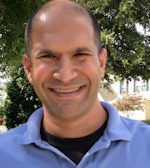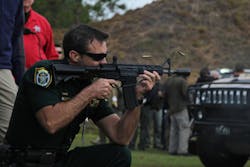In the field and in training, law enforcement officers encounter various noises that can affect their ability to hear later in their careers, and for the rest of their lives.
Diane Nens, an audiologist with hi HealthInnovations spoke to Officer.com about ways officers can spot the warning signs and prevent and treat hearing loss.
According to Nens, 10 million Americans have suffered noise-induced hearing loss and another 30 million are exposed to dangerous levels every day.
"Police officers are exposed to noise on a daily basis," she said. "They are exposed to gunfire and they are exposed to a lot of noise even through their radios systems and traffic."
With hearing being a necessary tool for officers, Nens stressed the importance of maintaining their hearing levels and finding ways to prevent hearing loss.
"It's critical that the police officers are hearing well because they have to be able to understand speech, localize where sounds are coming from and be able to respond appropriately to both speech as well as environmental sounds," she said.
The audiologist, who is based out of Michigan, pointed out a few things officers can do to reduce their risks while on duty.
"First, I understand that it's not always possible to use ear protection, but when possible, use ear protection," she said. "It really, really does make a difference because exposure to noise is cumulative, so at first we may not notice hearing loss, but over a prolonged period of time, we are at risk for that."
The type ear protection used depends on the situation. There are the traditional spongy earplugs that are placed in the ear, ear muffs, and custom ear protection through a doctor or audiologist. Nens said that in the case where ear protection is not an option, even covering your ears with your hands or moving away from loud sound can be helpful.
That prevention is more prevalent than it used, according to Nens, thanks to an increase in education and public awareness.
"Years and years ago, hearing loss wasn't really talked about," she said. "Over time, police departments have begun really encouraging their officers to use ear protection and have testing completed."
The patients she has seen that have worked in law enforcement have tended to be middle-aged and older and has observed some of the same warnings sign seen by the general public.
"Some of the signs they have experienced with hearing loss have been when they've had to turn the radio up, speech isn't as clear and may even come in and say that it sounds like people are mumbling when they talk," she said.
Often times, other people will notice it first, Nens said. Friends and family and people around the officer may notice that they are experiencing difficulty because hearing loss occurs gradually.
"Untreated hearing loss truly affects peoples' lives," she said. "It affects relationships, it affects their social interaction and there are even medical considerations."
Nens recommends that if hearing aids are recommended, that officers should pursue getting one.
"Being able to understand speech, being able to hear soft sounds or maybe if one police officer has to whisper to another, it really helps with the hearing," she said. "First and foremost, get a hearing test. Talk to your doctor or your audiologist to schedule a hearing test. This way the police officer knows where they stand."
Members of the National Association of Police Organizations (NAPO), and their spouses, have access to high-quality digital hearing aids for as little as $749 to $949 each, (compared to some hearing aids that retail for as much as $4,000 each) through hi HealthInnovations, which is part of UnitedHealth Group. To get more information, visit hihealthinnovations.com.

Paul Peluso | Editor
Paul Peluso is the Managing Editor of OFFICER Magazine and has been with the Officer Media Group since 2006. He began as an Associate Editor, writing and editing content for Officer.com. Previously, Paul worked as a reporter for several newspapers in the suburbs of Baltimore, MD.



